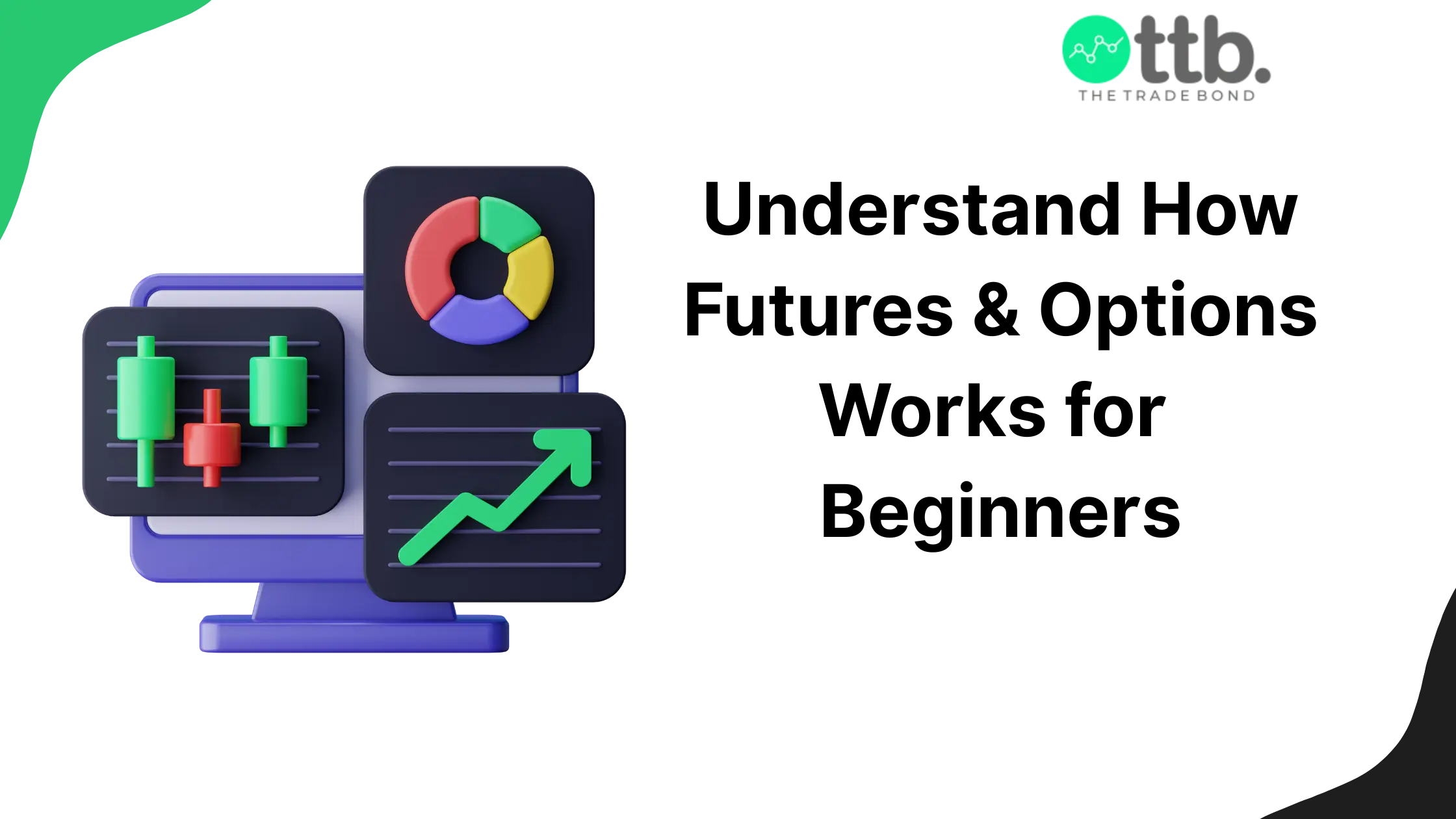How Futures and Options Trading Works: Guide for New Traders

Knowing about Futures and Options Trading
Futures and options trading has been one of the most popular ways to participate in the stock market. As it offers opportunity to the people who trade in this segment. This helps them to manage risk, hedge their positions, and take advantage of price movements without owning assets. However, futures and options may be complicated for beginners. With the help of this guide, you can learn the basics step-by-step. Which makes it easier to understand how these contracts work and what to keep in mind while trading.
What are Futures & Options?
The full form of F&O is futures and options, two types of derivative contracts in the stock market. Derivatives derive their value from an underlying asset such as stocks, indices, or commodities.
Futures contracts:
This is an agreement to buy or sell an asset at a fixed price on a future date.
Options contracts:
Option contracts are agreements that give rights to the buyer to buy or sell an asset at a fixed price before they expire.
In India, futures and options trading contracts are used by most of the traders for hedging, speculation, and leveraging small capital to manage large market positions. Beginners can also explore our page on Nifty option tips to understand how options are traded in Indian indices.
How to Trade Futures & Options
Equity market works as a platform where the companies raise funds and investors buy the shares to have ownership. When a company decides to increase their capital, it will announce shares in the form of IPOs. Once the IPos are listed, these shares are traded on stock exchanges such as BSE and NSE. Here, the prices get influenced by various factors like global events, corporate earnings, and economic news. Traders can track market trends using tools like sector analysis or index-based strategies. This will help to make valuable decisions.
How to Trade in Equities
To trade futures and options requires a step-by-step approach. These are the steps beginners should know:
Need to open trading and demat accounts: You must open trading and demat accounts to start F&O trading. Therefore, ensure your broker provides F&O trading facilities.
Learn about margin requirements:
Futures trading needs margin deposits, while options require premiums.
Choose the right contract:
Choose the right contract based on your strategy. Future contracts for direct exposure and option contracts for flexibility.
Understand lot size and expiry:
Every contract has a specific lot size and expiry date. So, every trader needs to understand lot size and expiry in futures and options.
Track market movements:
You must track market movements such as price action, news, and volatility.
By practicing these strategies on specific indices like Nifty future tips, you can gain additional insights on intraday and positional opportunities. By learning these steps, beginners get a clear idea of how futures and options trading work with practice.
Common Mistakes to Avoid in Futures & Options Trading
Beginners make mistakes in futures and options trading that can lead to losses. So, here are the common mistakes that you must avoid:
Overleveraging:
One of the common mistakes to avoid is over-leveraging. By taking larger positions with borrowed money can quickly clean up your entire capital.
Ignoring time decay:
Ignoring time decay reduces the option value as expiry nears. So, holding contracts too long can lead to losses.
No proper stop-loss:
Without a proper stop-loss, it can lead to sudden market moves. These can cause you bigger damage.
Chasing trends blindly:
Chasing trends blindly by entering trades without proper analysis often leads to poor decisions and unnecessary risks.
Many beginners look for short-term trades like weekly contracts. We have written a blog on why retail traders prefer weekly Nifty options can help in understanding both opportunities and risks involved.
Understanding the Basics of Futures & Options
Here we are going to understand the basics of futures and options. Every beginner should need to know these important terms. Firstly, lot size is the fixed quantity of an asset in each contract. Coming to options, the premium is the cost paid to enter a trade. Here, the strike price defines the level at which an option can be utilized. Open interest shows how many contracts are currently active in the market. By the help of these basics, you can build strategies with confidence in futures and options trading.
Important Things to Know Before Trading F&O
Unlike regular stock investing, futures and options trading needs extra caution. These contracts are usually highly volatile and quickly react to news or market events. Each contract comes up with an expiry. So, traders must time their entry and exits carefully. Instead of putting all funds into one position, you can allocate your capital smartly. Also, consider all brokerage charges, as some trades show impact on overall gains. Beginners can get support from a stock market advisor to build discipline and to trade with a structured approach.
Futures and Options Strategies Every Trader Should Know
Many strategies in futures and options trading are used by traders, from hedging to advanced option spreads. Below are some strategies you should know:
Hedging Strategy:
Using futures using this strategy protects your portfolio against sudden market moves.
Covered Call:
With the covered call strategy, you can hold a stock and sell a call option on it to earn premium income.
Protective Put:
With the help of this strategy, buy a put option to reduce the risk on your holdings.
Straddle/Strangle:
You can trade both call and put options to get benefits from big price moves regardless of direction.
As a beginner, you should go with simple strategies first, then explore advanced ones with experience.
Final Words
Futures and options trading is an exciting segment in the stock market. Because this offers flexibility and opportunities for traders and investors. Usually f&o seems complex at the beginning. But understanding the basics, by avoiding common mistakes, and applying simple strategies can make trading better. Whether you are exploring option trading tips, Nifty future tips, or insights from a reliable share market advisor. With the proper risk management is the key to building confidence in futures and options trading.
FAQ's
Is futures and options trading good for beginners?
Yes, beginners can do futures and options trading. But they should need to learn the basics, start with a small capital, and focus on risk management.
How do I start futures and options trading in India?
To start futures and options trading, you need a trading and demat account. With F&O access, you can understand margins and lot size and monitor market movements.
Are futures and options risky?
F&O contracts are leveraged and highly volatile in nature, which turns them into risky. Proper strategies and discipline help to manage risk.
